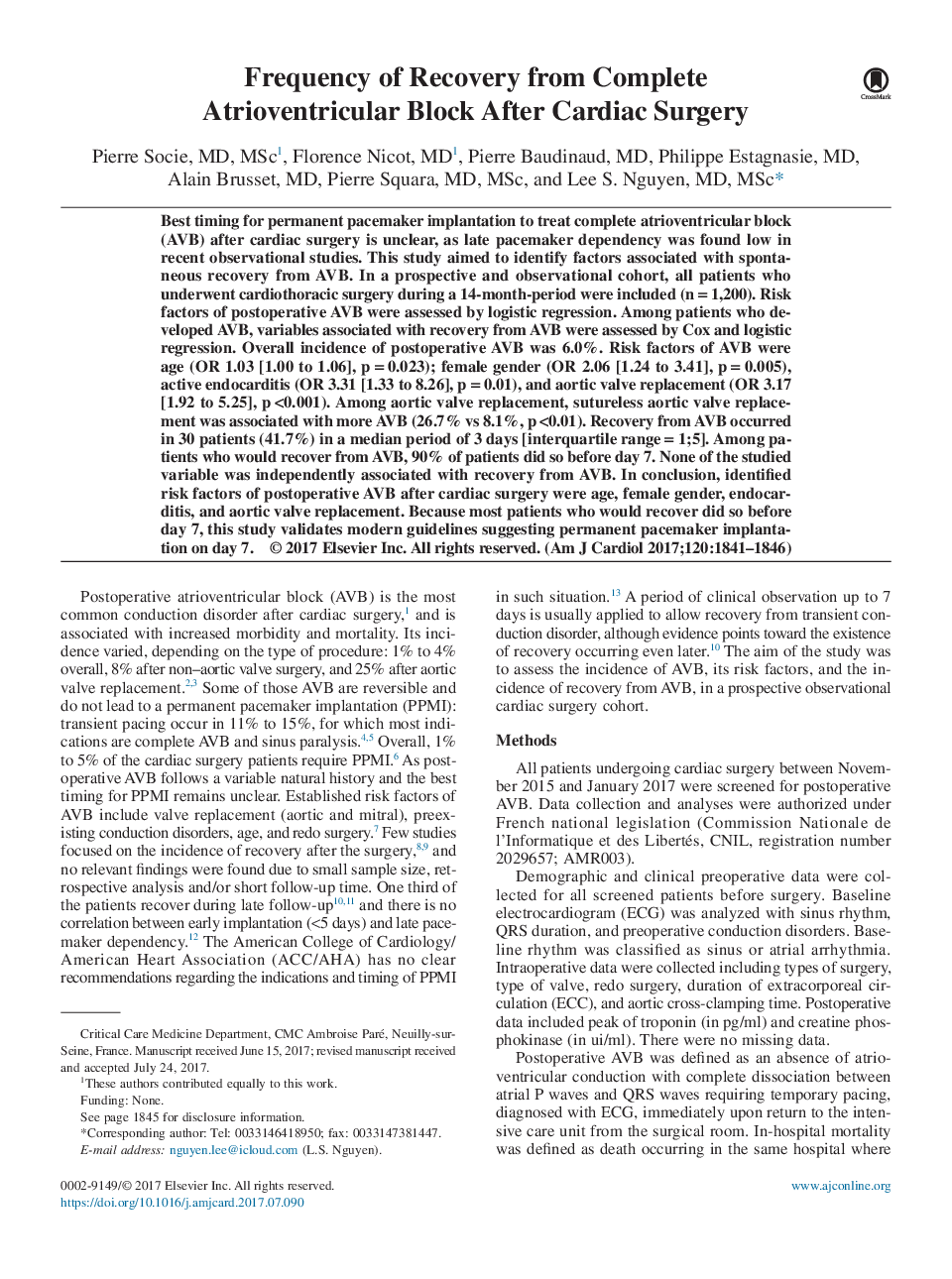| Article ID | Journal | Published Year | Pages | File Type |
|---|---|---|---|---|
| 5594608 | The American Journal of Cardiology | 2017 | 6 Pages |
Abstract
Best timing for permanent pacemaker implantation to treat complete atrioventricular block (AVB) after cardiac surgery is unclear, as late pacemaker dependency was found low in recent observational studies. This study aimed to identify factors associated with spontaneous recovery from AVB. In a prospective and observational cohort, all patients who underwent cardiothoracic surgery during a 14-month-period were included (nâ=â1,200). Risk factors of postoperative AVB were assessed by logistic regression. Among patients who developed AVB, variables associated with recovery from AVB were assessed by Cox and logistic regression. Overall incidence of postoperative AVB was 6.0%. Risk factors of AVB were age (OR 1.03 [1.00 to 1.06], pâ=â0.023); female gender (OR 2.06 [1.24 to 3.41], pâ=â0.005), active endocarditis (OR 3.31 [1.33 to 8.26], pâ=â0.01), and aortic valve replacement (OR 3.17 [1.92 to 5.25], pâ<0.001). Among aortic valve replacement, sutureless aortic valve replacement was associated with more AVB (26.7% vs 8.1%, pâ<0.01). Recovery from AVB occurred in 30 patients (41.7%) in a median period of 3 days [interquartile rangeâ=â1;5]. Among patients who would recover from AVB, 90% of patients did so before day 7. None of the studied variable was independently associated with recovery from AVB. In conclusion, identified risk factors of postoperative AVB after cardiac surgery were age, female gender, endocarditis, and aortic valve replacement. Because most patients who would recover did so before day 7, this study validates modern guidelines suggesting permanent pacemaker implantation on day 7.
Related Topics
Health Sciences
Medicine and Dentistry
Cardiology and Cardiovascular Medicine
Authors
Pierre MD, MSc, Florence MD, Pierre MD, Philippe MD, Alain MD, Pierre MD, MSc, Lee S. MD, MSc,
